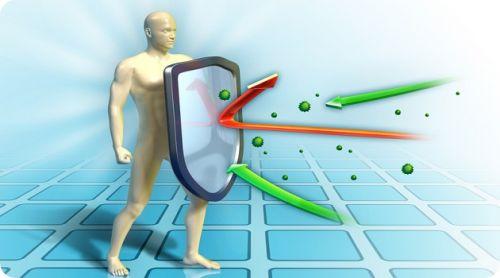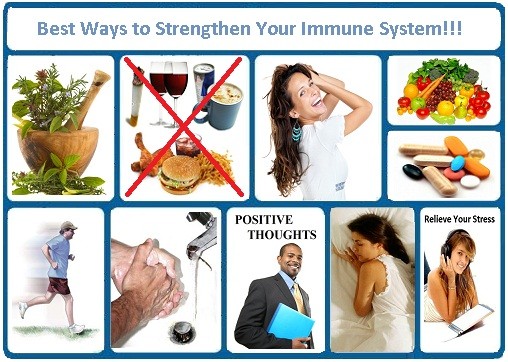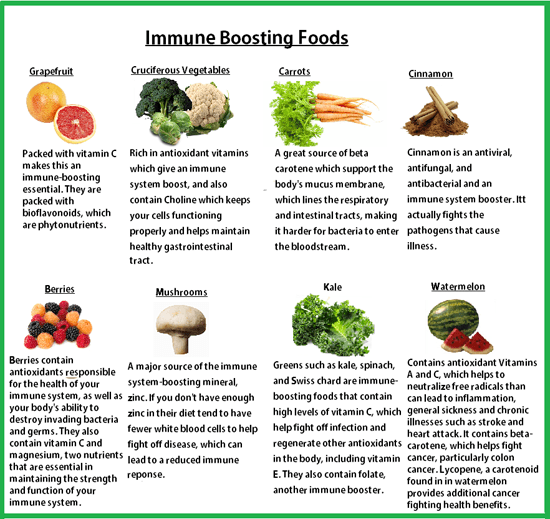
Are you a perpetual sickness sufferer, easily catching and struggling to shrug-off colds? Or maybe you want to prepare your body for surgery, old age or an epic adventure travelling the world?
The body’s natural defense against infections, our immune system, is driven by white blood cells (known as leukocytes). They identify and digest infections and other foreign invaders throughout the body. The strength of your immune system is governed by numerous factors including stress, genetics, ailments, diet and other lifestyle factors.
Everyone can benefit from boosting their immune system, but not everyone knows how. This article explores the several ways you can look after your immune system, so that it can look after you!
Basic lifestyle changes
Sorry smokers and drinkers, but the time has come for you to quit your unhealthy ways! But why should you give up, and what basic lifestyle changes can anyone make to boost their immunity? Here’s a little list to remind you:
- Alcohol forms harmful toxins when absorbed into the body, putting your liver and kidneys into overdrive to strip out alcohol before it damages to your white blood and other tissue. Not only does it damage white blood cells, alcohol reduces the absorption of the nutrients needed to repair and replace them!
- Stopping smoking is one of the best ways to improve your health. Smoking harms nearly every cell in your body including your immune system, and increases the likelihood of heart attacks, strokes, lung infections and cancer. The carcinogenic chemicals and tar in cigarettes also increases the risk of infections by overworking your immune system and, whilst smoking, your red blood cells (haemoglobin) carry less oxygen around.
- Why not swap your alcoholic beverages with water? Drinking 6-8 glasses a day helps maintain blood pressure, ensuring your white blood cells can easily travel around your body. It also energizes muscles, improves your digestive system and flushes your body of toxins.
- When sleeping, your body rests and repairs itself. Without 6-8 hours of sleep a night, it won’t just be your moods taking a turn for the worst. Insufficient sleep will lower your energy levels and immunity.
- The average life-expectancy in developed Western countries in 1900 was 49 years. It’s now at about 75 years. Much of this additional life is attributed to better hygiene. Be sure to wash regularly with warm water and soap. Most importantly you want to keep the openings in your body free from germs; so pay special care to your face, genitals and bottom. Next, make sure you wash your hands – especially after going to the toilet and before handling food. Finally, don’t forget to brush your teeth twice a day and to floss – as this will stop bacteria building up between your teeth and keep your gums strong and healthy.
- When you’re stressed it’s not just your moods that are affected. Stress reduces your ability to sleep and also lowers your immunity. A healthy diet, exercise and removing yourself from the causes of stress (such as work) will all help. You could also try relaxing activities like meditation, yoga or listening to relaxation music.
- Exercise goes hand-in-hand with diet to form a healthy lifestyle. Cardiovascular (aerobic) exercise helps improve your body’s respiratory and circulatory systems, helps you lose weight and thereby your overall health. Anaerobic (short and intense) exercise helps increase your muscle-mass, increasing your metabolic rate and therefore your immune response speed and efficiency.

You are what you eat
If you eat junk food, your immune system will do its best to run on junk: but will perform poorly. Eating a balanced, healthy diet will increase your immune response time and strength. Firstly try to follow these three principles:
- White blood cells, like the rest of our body, are built from proteins. Ensure you include at least 20% if not a little more protein in your diet, so your white blood cells can be built and other damaged or infected tissue replaced. Try eating fish, eggs and lean white meat (chicken and turkey); keeping the level of red meat and dairy down, to avoid the bad fats.
- Whilst saturated fats increase the risk of blocked blood vessels and heart disease, unsaturated fats aid absorption of vitamins and grease the metaphorical cogs that keep our bodies moving! So try to avoid processed foods and limit your consumption of cheeses and butter; instead swap butter for olive oil and obtain other good fats from oily fish, nuts and seeds.
- Limiting simple carbohydrates and having a moderate amount of complex carbs isn’t just good for losing weight. Studies have shown a diet heavy in carbohydrates actually lowers the production and levels of white blood cells, thereby weakening immunity. Try swapping the white carbohydrates from wheat, sugar and potatoes with wholegrain equivalents, natural sweeteners and sweet potatoes.

As well as sticking to these three principles, it’s also vitally important to eat the right fruit and vegetables to feed your body the vitamins, minerals and other micronutrients it needs. Try to include some super-foods containing:
- Foods rich in antioxidants like beta carotene (found in green, red and orange vegetables); Vitamin C (found in berries, leafy greens and citrus fruits); Vitamin E (abundant in nuts and seeds) and Zinc (which occurs naturally in seafood, beans and nuts).
- Cancer-fighting ingredients sourced from the finest fish, fruit, vegetables, seeds and nuts.
- Energy-boosting foods won’t just keep your energy levels high, they’ll keep your immune system on its toes – we’re not suggesting you binge on energy drinks and sugary snacks. There’s much healthier alternatives to keeping your energy levels and immune system functioning at full capacity!
Unnatural supplements
Providing you’re following a healthy lifestyle outlined above and you’re not suffering certain medical conditions, you shouldn’t need to take pharmaceutical supplements to boost your immune system. However, if you are in need or are curious to learn more, here’s the most common man-made supplements on the market:
- Increasing Vitamin C consumption will increase the number of white blood cells and increases their resilience, therefore the strength of your immunity. Adults can take up to 2g a day. Before reaching for the bottle (of pills), why not try eating more citrus fruit and berries?
- There’s no point loading-up on Vitamin C without enough zinc in your diet. Zinc helps your body absorb Vitamin C, and improves the efficiency of your white blood cells. Instead of supplements, you can get zinc from meat, fish and milk.
- As well as zinc, make sure you’ve got enough of the mineral copper. You only need a tiny amount in your body to help fine-tune your metabolic rate and immune response system, as well as neutralizing free radicals. You only need a small amount that you can obtain from leafy greens, organs (like liver and kidneys) and cereals.
- The other important vitamin for your immunity is Vitamin A. Vitamin A improves the speed and strength of your immune response, and is found naturally in orange and red vegetables like tomatoes, squash, pumpkins, carrots, chillies and peppers.
- If you’ve tried everything above, and still suffer a weak immune system, you could try immunoglobulin supplements. Over the counter, you can obtain a months’ worth of colostrum powder whose effects will last up to five years. If you’re really struggling, your doctor might recommend injections – but this is a last resort, saved for sufferers of autoimmune diseases, severe inflammations or acute infections.